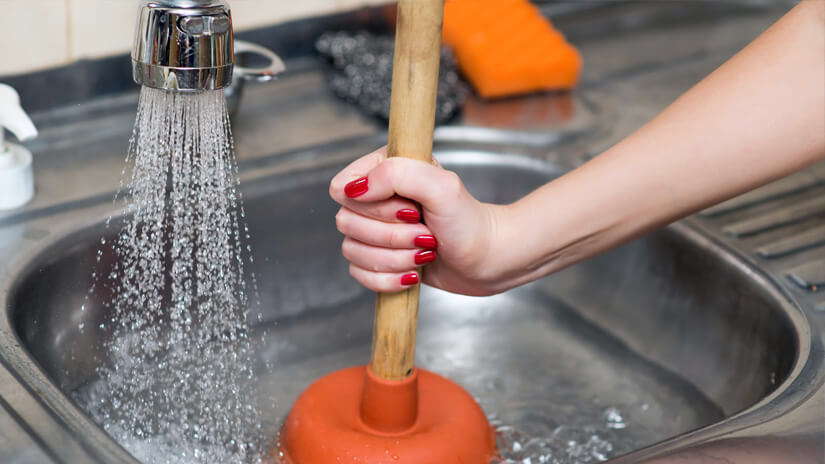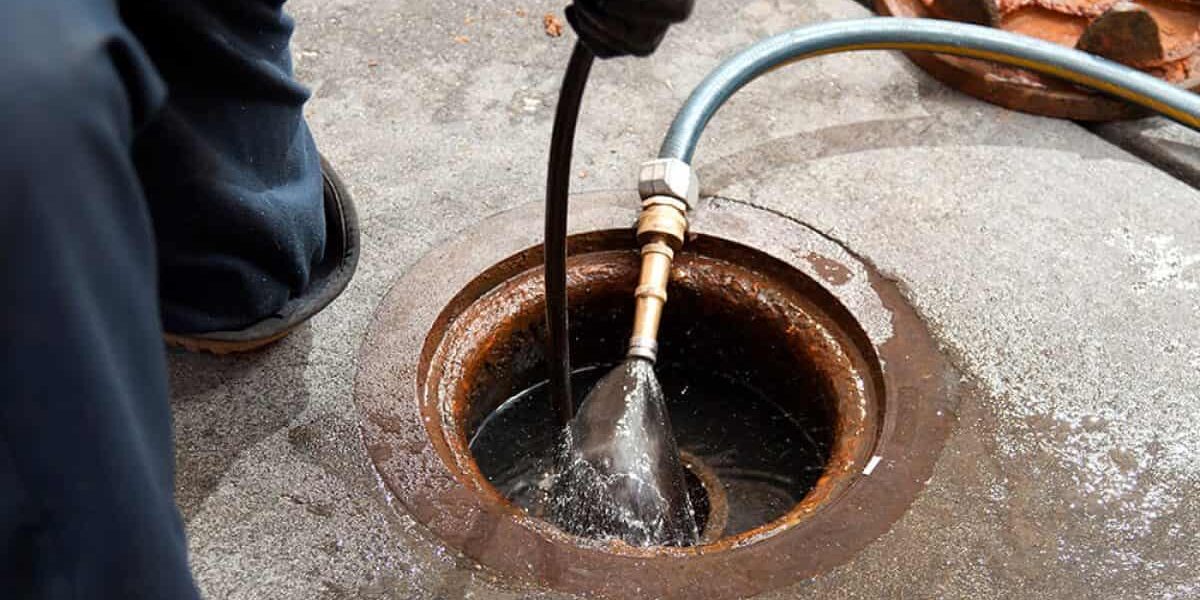Advice for Managing a Blocked Drain Prior to Seeking Plumbing Professionals
Advice for Managing a Blocked Drain Prior to Seeking Plumbing Professionals
Blog Article
We've discovered this post relating to 8 Tips For Clearing A Blocked Drain down the page on the internet and think it made sense to relate it with you in this article.

Intro
Managing an obstructed drainpipe can be an irritating experience, interrupting daily activities and potentially creating damages to your home. Nonetheless, before connecting to pipes experts, there are actions you can take to address the problem on your own. In this overview, we'll discover DIY remedies and preventive measures to deal with an obstructed drain effectively.
Determining the Concern
The primary step in attending to an obstructed drain is acknowledging the indicators. Slow-moving drainage, gurgling sounds, foul odors emanating from drains pipes, or water backing up prevail indications of a blocked drainpipe. Identifying these indications early can assist stop even more issues.
Common Sources Of Blocked Drainpipes
Recognizing the aspects that add to drain pipes blockages is essential for efficient resolution. Common offenders include hair, soap scum, grease, food debris, and foreign items like sanitary products or paper towels. Tree origins invading below ground pipelines can also cause substantial obstructions.
DIY Solutions
For small obstructions, a number of do it yourself options can be effective. Putting boiling thin down the drain can assist dissolve grease and debris. Sodium bicarbonate and vinegar or a mixture of salt and cooking soda can act as all-natural cleansers. Using a bettor or pipes serpent to remove blockages is an additional choice.
Tools and Equipment
Having the right tools available can make do it yourself drain cleaning a lot more reliable. A plunger is a flexible device for clearing blockages in sinks, toilets, and showers. A plumbing snake or auger can get to much deeper obstructions, while drainpipe cleaning chemicals can be utilized carefully for stubborn blockages.
Preventive Measures
To avoid future clogs, taking on safety nets is essential. Install drainpipe guards or filters to catch hair and particles before they get in the pipes. Routinely flush drains pipes with hot water to liquify grease build-up, and avoid getting rid of oil or strong waste down the tubes.
When to Call a Specialist
While do it yourself remedies can solve minor blockages, certain indicators indicate the need for expert support. Persistent obstructions, foul odors in spite of cleaning initiatives, or numerous drains pipes supporting at the same time are red flags that call for skilled intervention.
Picking the Right Plumbing Service
When selecting a pipes service, think about factors such as experience, licensing, and consumer evaluations. Pick a respectable plumbing professional with a performance history of high quality workmanship and clear pricing methods.
Expense Considerations
The expense of expert drainpipe cleaning services can vary depending on the extent of the blockage and the plumber's rates. Demand quotes from numerous providers and ask about any kind of surcharges to make sure openness and stay clear of surprises.
Safety Precautions
When trying DIY drainpipe cleaning, focus on safety. Put on protective handwear covers and eyewear to stay clear of contact with damaging chemicals or microorganisms. Never blend various drainpipe cleaning products, as this can produce harmful fumes.
Case Studies
Real-life instances illustrate the efficiency of do it yourself solutions and the importance of prompt specialist treatment in settling drain obstructions.
Conclusion
By adhering to the tips laid out in this overview, you can efficiently deal with blocked drains and prevent future plumbing concerns. Whether selecting DIY options or seeking professional assistance, punctual action is key to preserving a healthy plumbing system and protecting the integrity of your home.
How to Clear a Clogged Drain Yourself (And When to Call In the Professionals)
What Can Clog a Drain
Dirt Skin flakes Hair Grease Soap scum Food Offset pipes Tree roots Small objects Mineral buildup DIY Tricks to Unclog a Drain
You can fix this! Once you have identified the source of the clog (or have a vague idea), you can try one or a combination of these fixes in order to clear your plumbing.
Wire Hanger or Snake
Untangle and clear out hair from a drainpipe with a homemade snake. Use a straightened-out wire hanger with a 90-degree angle hook to locate the clog and drag out any unwanted material.
Remember not to push the clog further down to where the wire hanger cannot reach! If you need to follow up with a plunger, give it a try. Your efforts might be more successful after it’s been wire-snaked.
If you want to get fancy and don’t have a wire hanger to spare, head to the store and pick up a hand-operated drain snake. You can get one for $10-$30. It may save you the hassle, and provide additional length to reach deep into the clogged pipe.
Plunger
A cup plunger has a suction cup attached to a wooden handle. The rubber creates a seal around the drain, and increases the pressure force of the plunger.
Plunge for 30-second increments to loosen the clog. This may need to be repeated over the course of 15-20 minutes. Once plunged, run the water to flush the remaining material out of the drain.
Remember– never use a plunger if you have used a chemical drain cleaner. These chemicals can splash up from the force of the plunger and cause serious injury or burns.
Boiling Water
Hot water can sometimes break up materials into a flushable amount. Dirt, grease, and soap buildup requires heat in order to unstick from surfaces.
Take your kitchen kettle and heat your water to a boil. Once it reaches a rolling boil, pour it directly down the drain into the blockage. Carefully follow with plunging, if necessary.
Don’t worry if this takes more than one try! It can often take multiple kettles and repeated plunging in order to clear a particularly stubborn clog.
Chemical Drain Cleaner
As a last resort, pick up a bottle of chemical drain cleaner. Drain-cleaning chemicals are potent, and not very good for the environment.
You may need to wear protective eyewear in gloves before handling your bottle of chemical drain cleaner. Follow the instructions printed on the bottle, and flush with water as soon as the instructions allow. Do not follow with plunging.
Baking Soda and Vinegar
As a safer alternative to chemical drain cleaner, baking soda and vinegar can create a chemical reaction that clears tough clogs.
Combine one cup of cleaning vinegar with one cup of boiling water, and set aside. Once you have done this, pour half a cup of baking soda down the drain. Give the baking thirty seconds to settle and cover a large portion of the problem drain.
Following the baking soda, pour down your vinegar and hot water solution. Once the vinegar and baking soda combine, the mixture will bubble and fix. Let this reaction fizzle in the drain for about an hour.
After an hour, follow with a kettle’s worth of hot water. The heat and liquid should flush out any remaining material.
When to Call a Plumber
If your DIY attempts haven’t cleared your clog drain, it’s time to call in a professional. It’s not worth losing access to your kitchen sink or high-traffic bathroom. A clog in a vital area can keep you from the things you’d rather be doing, and derail your routine.
Anytime a clog is causing water to spread is a time to call in a plumbing service. What starts out as a little bit of water can quickly grow into serious, expensive water damage.
Additionally, a serious clog can result in burst pipes or serious leaks. Make sure you know when to take it seriously!
https://myguysnow.com/how-to-clear-a-clogged-drain-yourself-and-when-to-call-in-the-professionals/

Hopefully you enjoyed reading our article about How to handle a clogged drain in your home. Thank you so much for taking a few minutes to read our posting. Those who enjoyed our post please be sure to pass it around. I thank you for your readership.
Call Report this page